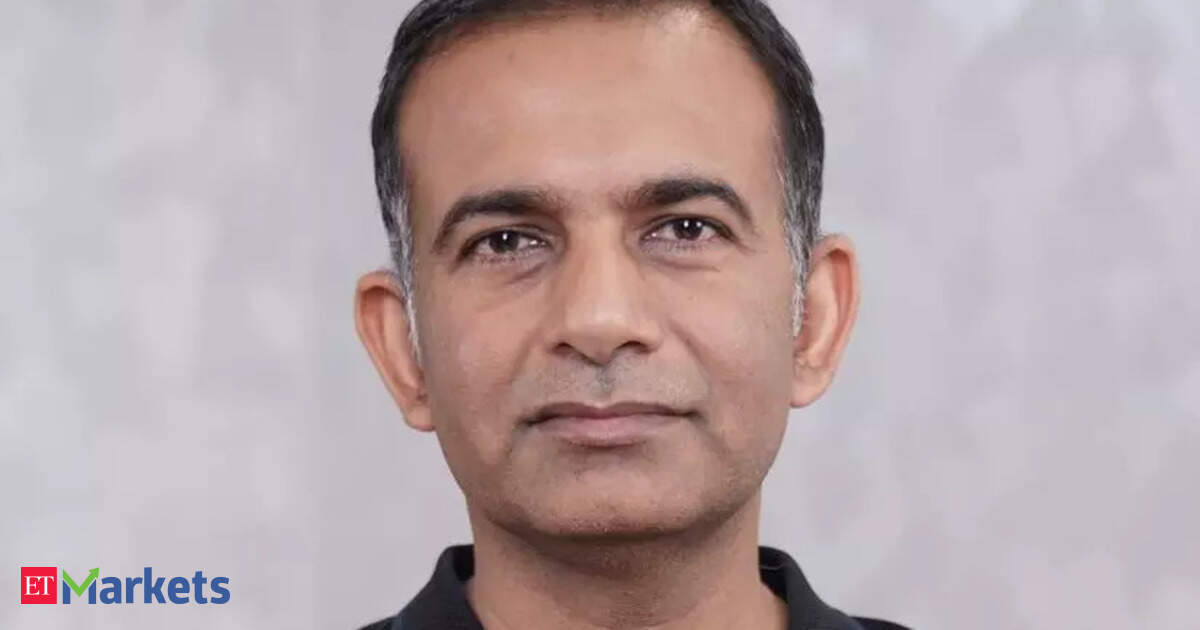Sharma explains that successful investing isn’t about finding the next multibagger or following market noise, but about maintaining discipline and consistency.
Drawing on Estee’s systematic, quant-driven approach, he shares insights on why data and long-term strategy trump speculation and short-term bets in creating sustainable wealth. Edited Excerpts –
Q) Markets are struggling in the first month of 2H2025. What is limiting the upside?
A) Struggling is a stretch—we’re just ten days into H2. Markets are back near September 2024 levels, absorbing the gains from a strong Q1.
In the short term, there’s more noise than signal. Q1 earnings are expected to be modest at 4–5% YoY, below the 10% projected for FY26, and global jitters aren’t helping.
But it’s hard to reliably translate any of this into clear outcomes. It’s always more prudent to focus on the long term than react to short-term noise.
Q) The June quarter season has just begun – how do you see India Inc. faring in this quarter?
A) It’s very hard to make reliable quarter-on-quarter projections. Short-term earnings and market movements are often dominated by noise and sentiments rather than information.A well-known study by Philip Tetlock showed that expert forecasts—particularly those made with high confidence—were often no better than random chance. At Estee, we take that seriously.Rather than trying to predict how each quarter will play out, we focus on maintaining a long-term, systematic approach.
Our models adapt to evolving data over time, allowing us to stay responsive without being reactive. That’s been far more effective than chasing short-term noise.
Q) Everyone says it is a stock pickers market now and the day of making easy money is over. What are your views?
A) In my experience, chasing easy money is the quickest way to lose hard-earned money.
As a systematic quant investor, I don’t subscribe to the idea that wealth creation depends on finding that one golden multibagger or having access to insider information.
Our Long Alpha portfolio is built on a disciplined, factor-based strategy and typically holds 80 to 100 stocks. This breadth helps manage risk efficiently while still generating healthy alpha.
Over the past five years, the strategy has delivered returns of nearly 35%. That’s not luck—it’s the result of staying systematic and consistent. In investing, it’s discipline that compounds, not shortcuts.
Q) FIIs are still not back in India completely – is it valuations or earnings which are proving to be headwinds?
A) FIIs have been net sellers since October last year and were a major catalyst behind the market drawdown. While some inflows have returned, they remain modest relative to the earlier outflows.
FII flows are rarely dictated by a single factor—it’s a blend of valuations, earnings outlook, global rates, amongst other factors.
What stood out in this phase was the strength of domestic mutual fund flows. Equity inflows remained strong and helped cushion the impact of FII selling—reflecting the rising confidence among retail investors in India’s long-term fundamentals.
Q) Which sectors are likely to drive momentum in the 2H2025?
A) We don’t make directional sector calls. Sector performance tends to be cyclical and unpredictable—what outperforms in one half can underperform in the next.
Our approach remains sector-agnostic, relying on data and factor signals to dynamically allocate exposure. This helps us stay balanced and responsive, without anchoring to short-term themes.
Q) Any sector(s) which you think is overheated?
A) Rather than label sectors as overheated, we prefer to let the data speak. Our models track valuation dislocations and crowding indicators, and rebalance exposure accordingly.
Sector-level excesses—when they appear—get corrected through our systematic process without needing to make subjective calls.
Q) Despite recent regulatory steps, retail investors still account for 91% of the losses in the derivatives segment. What more can SEBI do to protect them?
A) I think we need to move beyond the notion of SEBI being a protector of retail investors. SEBI is a regulator, not a guardian. Greed is a deeply rooted human trait—despite knowing the odds are stacked against them, people still gamble, and that industry thrives globally.
Speculating in derivatives to earn quick money taps into the same impulse. SEBI has done commendable work on investor education, and the risks are now well known.
But ultimately, adults making wilful decisions in pursuit of profit must bear responsibility for the outcomes.
(Disclaimer: Recommendations, suggestions, views and opinions given by the experts are their own. These do not represent the views of Economic Times)








